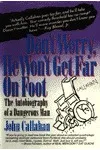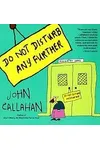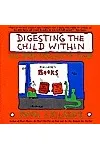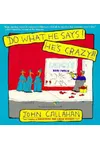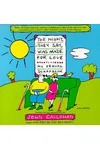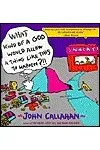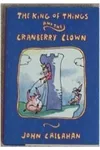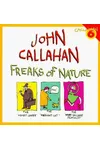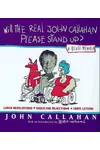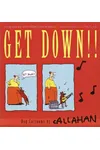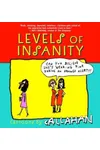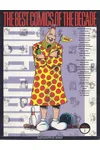Picture a cartoonist who turned tragedy into biting humor, wielding a pen with defiance and wit—meet John Callahan! Born in Portland, Oregon, in 1951, Callahan became a quadriplegic at 21 after a drunk-driving accident. Yet, he transformed his pain into darkly funny cartoons that tackled taboo topics like disability, addiction, and societal hypocrisy, earning both fans and critics. His irreverent style made him a beloved, polarizing figure in cartooning.
Callahan’s journey wasn’t just about art; it was about resilience. After years of alcoholism and a life-altering crash, he found salvation in cartooning, music, and sobriety. His work, often published in Willamette Week, sparked laughter and outrage, proving humor could be a powerful lens for truth.
The Making of John Callahan
Adopted as an infant in Portland, Callahan grew up in The Dalles, where his rebellious streak shone early. At eight, he faced sexual abuse by a teacher, a trauma that fueled his descent into alcoholism by age 12. Despite a knack for drawing caricatures of nuns at his Catholic school, his early adulthood was marked by aimless jobs and heavy drinking. The 1972 car accident, caused by a drunk friend, left him paralyzed, but it also became a turning point. In 1978, Callahan joined Alcoholics Anonymous, channeling his frustrations into art and earning a bachelor’s degree from Portland State University.
John Callahan’s Unforgettable Works
Callahan’s cartoons, drawn with a pen clutched between both hands due to his quadriplegia, were raw, squiggly, and fearless. Published in outlets like The New Yorker and Penthouse, his work lampooned everyone—liberals, conservatives, feminists, and even the disabled. His 1989 autobiography, Don’t Worry, He Won’t Get Far on Foot, chronicled his journey from alcoholism to recovery with unflinching honesty and dark humor. The book inspired a 2018 film starring Joaquin Phoenix, directed by Gus Van Sant.
His second memoir, Will the Real John Callahan Please Stand Up? (1998), doubled down on his irreverent voice. Callahan also created two animated series: Pelswick, a kids’ show about a wheelchair-using teen, and Quads!, a raunchy adult comedy about disabled housemates. In 2006, he released a music album, Purple Winos in the Rain, showcasing his songwriting and harmonica skills, with a cover he illustrated himself. Each work carried his signature blend of grit, wit, and defiance.
Callahan’s style drew comparisons to Charles Addams and Gary Larson, but his perspective as a quadriplegic gave him unique license to tackle disability with humor. Fans with disabilities often praised his rejection of pity, while critics called his work offensive. He shrugged off the backlash, saying his compass was the laughter of those in wheelchairs.
Why John Callahan Matters
Callahan’s legacy lies in his refusal to sugarcoat life’s hardships. His cartoons challenged readers to confront uncomfortable truths, making him a trailblazer in disability representation and black humor. His work inspired countless artists to push boundaries, and his story of overcoming addiction and disability resonates as a testament to human resilience. The John Callahan Memorial Garden in Portland, dedicated in 2017, stands as a tribute to his impact, inviting visitors to laugh and reflect.
His influence extends to pop culture, from animated series to a critically acclaimed biopic. Callahan showed that humor could be a lifeline, turning personal pain into universal commentary. His fearless voice continues to inspire those who dare to laugh in the face of adversity.
- Born: February 5, 1951, Portland, Oregon
- Key Works: Don’t Worry, He Won’t Get Far on Foot, Will the Real John Callahan Please Stand Up?, Pelswick, Quads!
- Died: July 24, 2010, from respiratory complications
- Notable: Created cartoons for Willamette Week for 27 years
About John Callahan
Ready to dive into Callahan’s wickedly funny world? Grab Don’t Worry, He Won’t Get Far on Foot and brace yourself for a rollercoaster of laughs and raw honesty!
